Javin Pombra
The Disagreement Problem in Explainable Machine Learning: A Practitioner's Perspective
Feb 08, 2022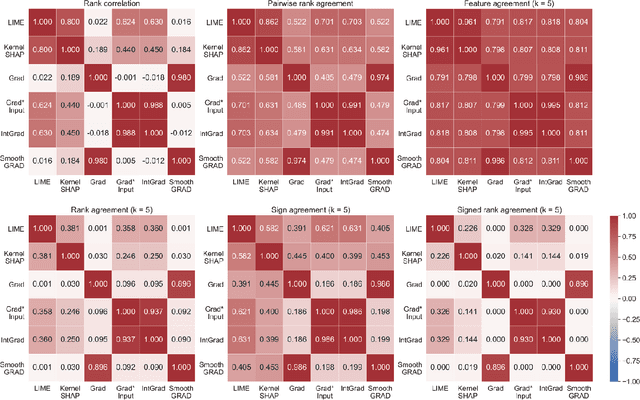
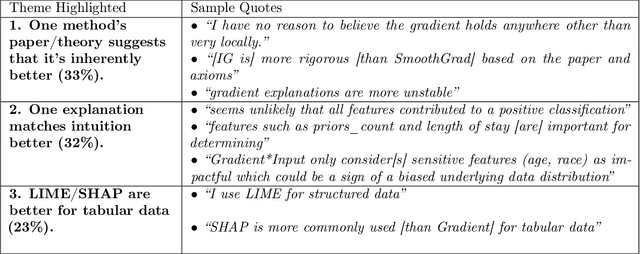
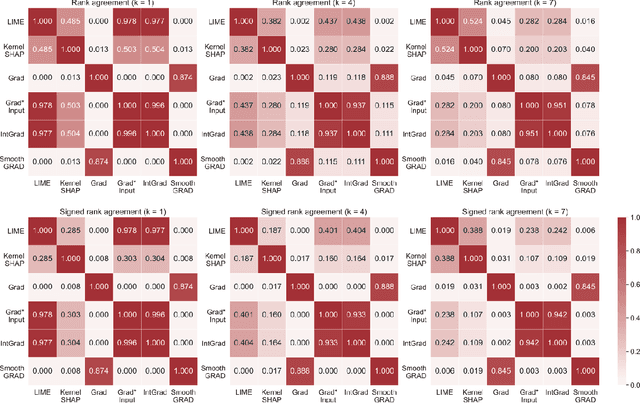
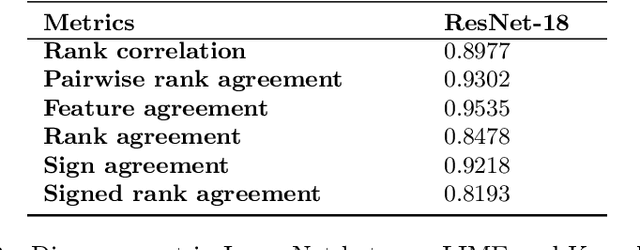
Abstract:As various post hoc explanation methods are increasingly being leveraged to explain complex models in high-stakes settings, it becomes critical to develop a deeper understanding of if and when the explanations output by these methods disagree with each other, and how such disagreements are resolved in practice. However, there is little to no research that provides answers to these critical questions. In this work, we introduce and study the disagreement problem in explainable machine learning. More specifically, we formalize the notion of disagreement between explanations, analyze how often such disagreements occur in practice, and how do practitioners resolve these disagreements. To this end, we first conduct interviews with data scientists to understand what constitutes disagreement between explanations generated by different methods for the same model prediction, and introduce a novel quantitative framework to formalize this understanding. We then leverage this framework to carry out a rigorous empirical analysis with four real-world datasets, six state-of-the-art post hoc explanation methods, and eight different predictive models, to measure the extent of disagreement between the explanations generated by various popular explanation methods. In addition, we carry out an online user study with data scientists to understand how they resolve the aforementioned disagreements. Our results indicate that state-of-the-art explanation methods often disagree in terms of the explanations they output. Our findings also underscore the importance of developing principled evaluation metrics that enable practitioners to effectively compare explanations.
RecPipe: Co-designing Models and Hardware to Jointly Optimize Recommendation Quality and Performance
May 22, 2021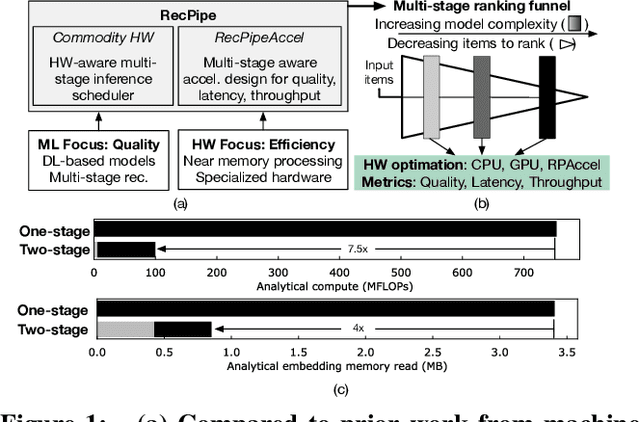
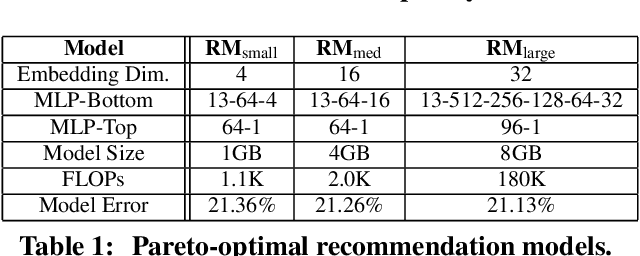
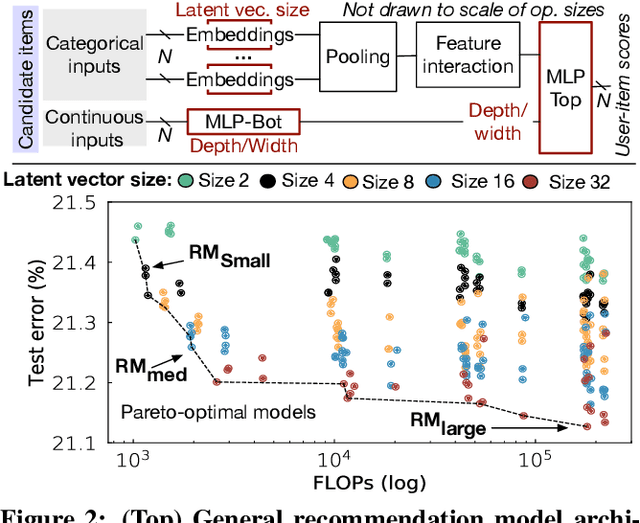
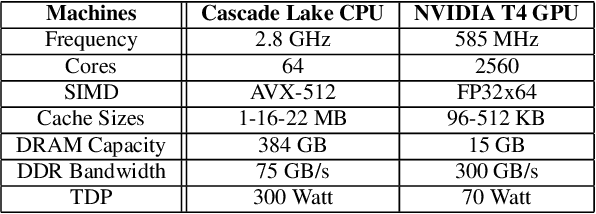
Abstract:Deep learning recommendation systems must provide high quality, personalized content under strict tail-latency targets and high system loads. This paper presents RecPipe, a system to jointly optimize recommendation quality and inference performance. Central to RecPipe is decomposing recommendation models into multi-stage pipelines to maintain quality while reducing compute complexity and exposing distinct parallelism opportunities. RecPipe implements an inference scheduler to map multi-stage recommendation engines onto commodity, heterogeneous platforms (e.g., CPUs, GPUs).While the hardware-aware scheduling improves ranking efficiency, the commodity platforms suffer from many limitations requiring specialized hardware. Thus, we design RecPipeAccel (RPAccel), a custom accelerator that jointly optimizes quality, tail-latency, and system throughput. RPAc-cel is designed specifically to exploit the distinct design space opened via RecPipe. In particular, RPAccel processes queries in sub-batches to pipeline recommendation stages, implements dual static and dynamic embedding caches, a set of top-k filtering units, and a reconfigurable systolic array. Com-pared to prior-art and at iso-quality, we demonstrate that RPAccel improves latency and throughput by 3x and 6x.
 Add to Chrome
Add to Chrome Add to Firefox
Add to Firefox Add to Edge
Add to Edge